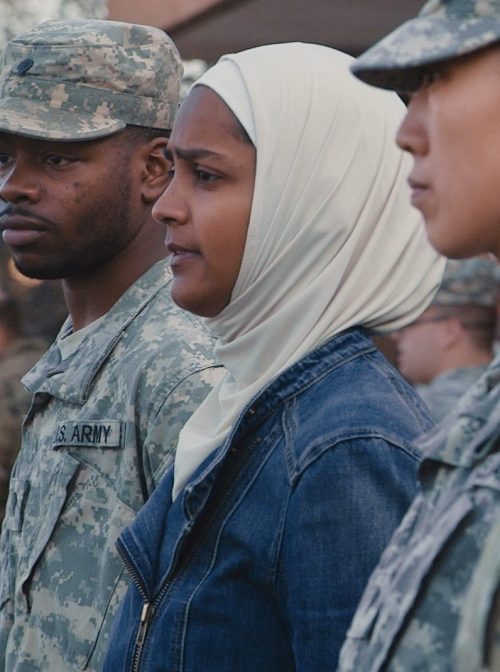The United States military has around one million active-duty service members, and among them, approximately 5,000 self-identify as Muslim.
Among the 3,000 chaplains serving the U.S. military, there are only 20 who are Muslim. The documentary film Three Chaplains delves into the lives of three Muslim chaplains in the US military.
For Muslim chaplains, their commitment to upholding the First Amendment isn’t solely a facet of their job description, it’s a personal one. Chaplains like Rafael Lantigua, Khallid Shabazz, and Saleha Jabeen swear to the Constitution. They pledge to safeguard the right of every service member to practice their faith freely. However, despite dedicating decades of their lives to military service, some still view them with suspicion and skepticism because of their beliefs. Rather than conform, they bravely embrace the challenges and inherent risks of being the public face of Islam within the U.S. military. “Three Chaplains” offers a unique perspective inside the US military, revealing how these three chaplains practice, teach, and share their faith with troops around the country. Just like the generations of minority service members before them, they advocate for the Department of Defense to support equality for all in the military.
Suraj Arshanapally had the opportunity to sit down with Director and Producer, David Washburn, as well as Producer, Razi Jafri, to discuss their thoughts and insights from the film.
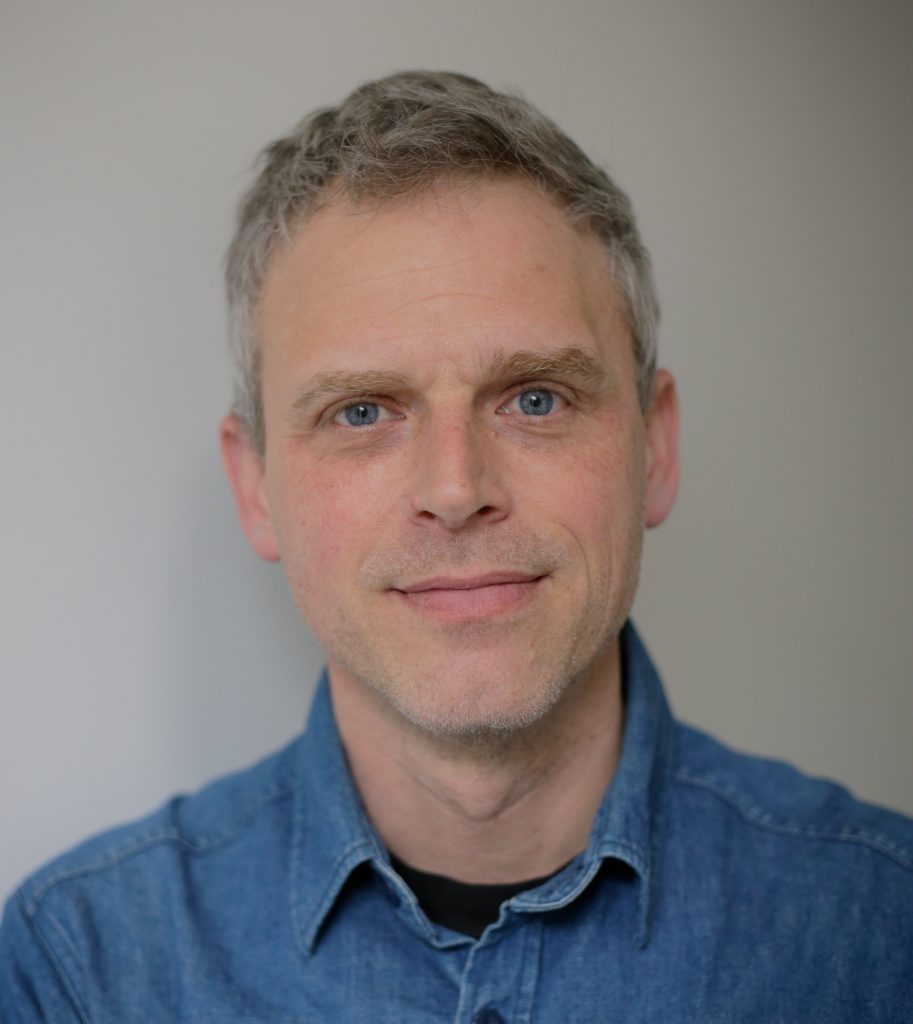
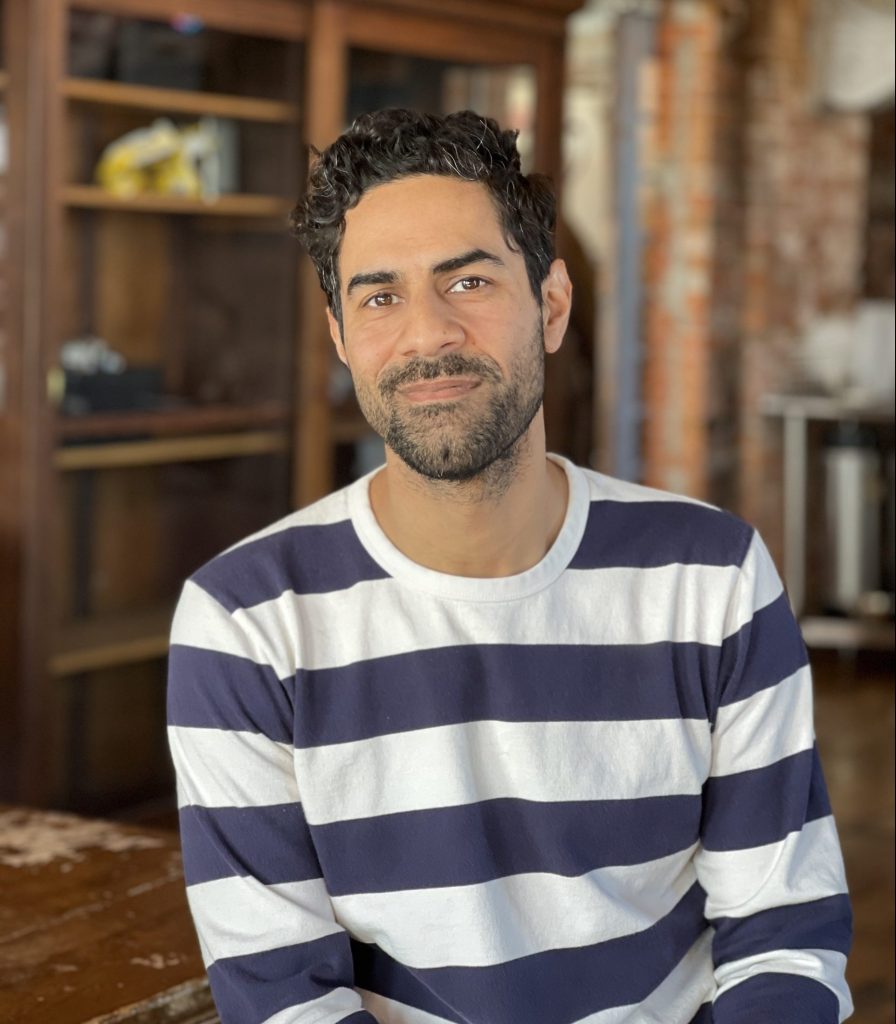
This interview has been edited for length and clarity.
Suraj Arshanapally: David and Razi, it is nice to meet you both. I watched your film “Three Chaplains” and loved it. Could you share a brief pitch of what your film is about for our readers?
David Washburn: “Three Chaplains” is about Muslims, religious freedom, and chaplaincy in the U.S. military. It is told through the stories of three Americans who all came to the military for different reasons. They are working towards building a greater understanding of Muslims and a greater understanding of diversity in the U.S. military. They are all standing for equality and holding the organization accountable for the promise of equality and religious freedom and defending the Constitution.
Suraj Arshanapally: A film about Muslims in the U.S. military is an interesting perspective to cover. What inspired you to make this film?
Razi Jafri: As a Muslim storyteller, I’m interested in Muslim presence in American institutions. Take a community that is perceived to be one of the most suspicious or misunderstood, then contrast it with one of our most sacred institutions in the United States, like the military. My previous film “Hamtramck, USA” looked at life and democracy in America’s first Muslim-majority city. I observed the engagement of that community in choosing new leadership through electoral and democratic processes. Curiosity around these topics is really there for me.
David Washburn: The film work I’ve done since 2005 has been informed by the post-9/11 era and how that revealed how little Americans know about other Americans. Razi and I both believe that the power of documentary film is getting at some of these lesser known stories and firsthand accounts that can inform viewers and open their minds in new ways. We wanted to learn about the Muslim religious leaders in the U.S. military and what multiple perspectives they are holding. We also wanted to learn how their stories can help inform a more nuanced view of Muslims in the United States and those who serve in the U.S. military.
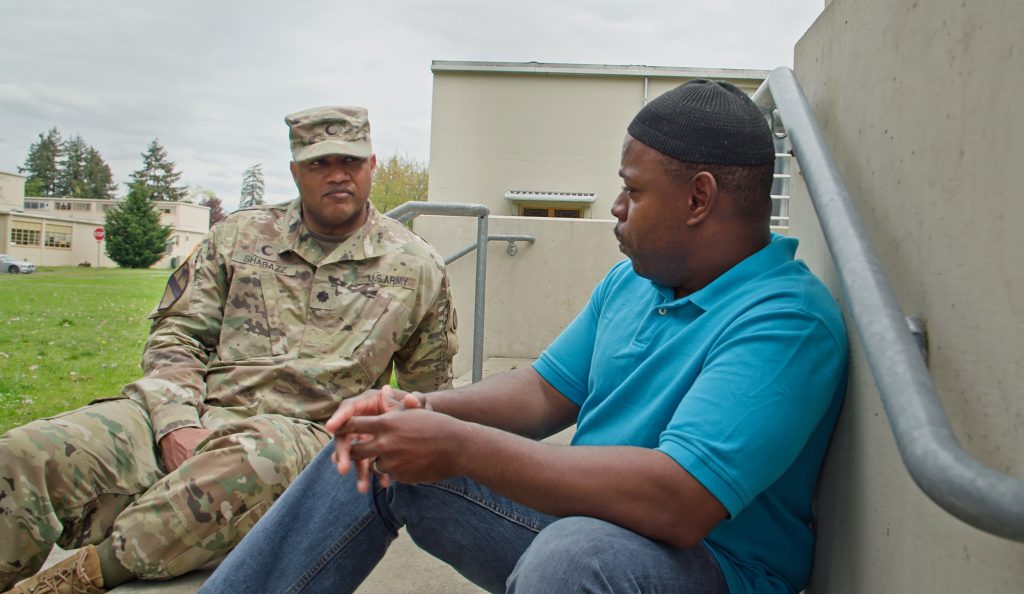
Suraj Arshanapally: Not many people outside of the US military get an inside look. Did anything surprise you about the U.S. military as a filmmaker?
David Washburn: I did not serve in the military and I don’t have close friends or family who did. I use filmmaking as a way to learn. It is important to me to have my filmmaking driven by curiosity. Over the course of the film, I was surprised to find people in the military to be progressive. I could relate to them. People understood the importance of a project like this. A younger side of me brought a bunch of bias about who is in the military and what their motivations are. The filmmaking process taught me that many of my presumptions were off, to be open-minded, and to consider that people are coming to this service for many reasons.
I was also surprised by the amount of religious services that are offered in the U.S. military. I’ve attended Eastern Orthodox services, Jewish services, Buddhist services… I mean, it’s just across the board. They have found a way to remain inclusive.
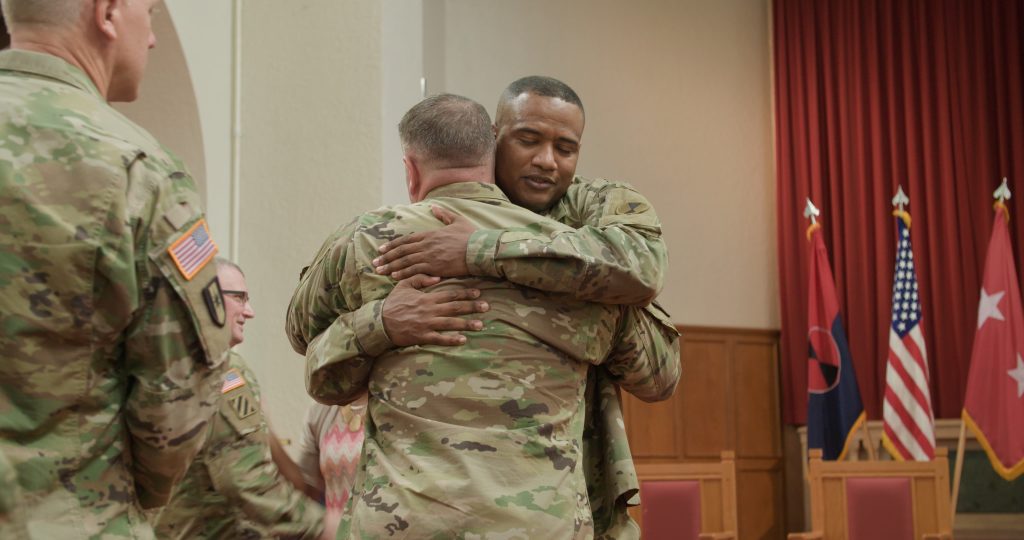
Razi Jafri: Similarly, I don’t come from a military background. I haven’t known many people personally that were in the military. My knowledge and awareness about the military was very limited, and if anything, there was a lot of suspicion and criticism of the military because I came of age in the post-9/11 era. All of these things would have made me want to keep a distance. However, after meeting veterans and chaplains, I saw intersections between their lives and my life despite us working in very different fields. I saw similarities between what I’ve gone through as a young Muslim growing up in America and what they have experienced.
Suraj Arshanapally: Can you share more about those similarities that you noticed?
Razi Jafri: I spent time with Rafael. I remember traveling with him to the Dominican Republic to visit his family. Rafael talks about his identity quite a bit as an Afro Latino. To be able to go to his home village to film with him and to spend time with his family, I felt like I was in India. My family is from a small village and in many ways, very similar to what Rafael’s family was like. I felt very much at home in their space. There was this real transcendent moment when I was walking into his aunt’s house and I realized I’m kind of home right now.
Suraj Arshanapally: That’s incredible. David, I’m curious to hear how you approached the filmmaking process. Typically, films around the military or armed forces focus on combat. However, that was not the case for this film.
David Washburn: We made a film about chaplains. Chaplains are non-combatants. They don’t carry arms. They take care of the mental and spiritual health of their unit.
For Razi and me, it was important to make a film that didn’t glorify the violence of war. That is what you see in almost every depiction of military service, and that is fine for some of those films. That was not the film we wanted to make. We made an intentional decision to not show any imagery of war. We showed the military just as a frame for a community of people that happen to be in the military. We are not naïve to the fact that the military does exist to defend our nation and execute war when necessary. That’s what it is there for.
But, there are hundreds of thousands of people who are joining the military who will never see combat and who did not sign up to engage in combat. They are part of this community. What is their life like? What is their spiritual life like, particularly for Muslims?
Part of the messaging of the film is to understand the humanity of service members who are in the film. You see 13 hugs in the film and no gunshots. I don’t think there is another documentary film about the military where there will be 13 hugs. When films portray people as robotic heroes or these muscular soldiers that are superhuman, then people believe that war is what they are designed to do. When you are on the ground and you are seeing who these people are, that is not what it is. They are real humans with families and loved ones, and we should be mindful of that. So when our country does decide to send people to war, it should be for a very serious reason because people will be affected and hurt.
Suraj Arshanapally: While watching the film, the theme of humanity and community definitely shined through. To me, these themes speak to a larger message on interfaith cooperation. How did the film contribute to your understanding of interfaith cooperation?
David Washburn: One of the core values of interfaith work is to look beyond your own interests and your own space. We wanted to stretch our imagination as storytellers to work in a space that required us to deepen our empathy and sense of understanding for people that are not like us. I think we brought a little bit of this to the project because neither of us served.
Razi Jafri: Interfaith work has been a big part of my activism since getting involved in college 20 years ago. It’s really interesting to see the Muslim leaders in the military and chaplains interact, educate, and collaborate with other faith leaders in the military and outside of it. It allows me personally to reflect on some of the work that I’ve been doing around interfaith dialogue and interfaith activism. At a time like this, you absolutely need interfaith dialogue and intercultural understanding between communities of different backgrounds. In a country that is becoming more diverse, there’s a real need for Americans to understand each other’s cultures and religions and backgrounds. It’s really one of the only ways we can effectively build peace by understanding one another.
David Washburn: Both of us have worked in interreligious and cross-cultural spaces. Doing enough of that work, you become open to learning and collaborating with your storytellers. I think one of the things about working with other storytellers, like the three chaplains in the film, in a genuine way is accepting that their stories are not necessarily going to align with how you thought it was going to go. And that is okay. That muscle that you develop through cross-cultural and interfaith work allows you to realize that you may want to see the world one way, but you need to be open to letting another story come out.
Suraj Arshanapally: Absolutely. It’s the beauty of documentary filmmaking. You have to let the stories unfold themselves. What impact do you hope the film will make?
David Washburn: In its most general form, I want the film to demystify Islam and Muslims in the United States. As filmmakers, we don’t believe in this “let’s explain who Muslims are” or “let’s explain what Islam is and then people will get it” approach. We believe that you need to just show people living their lives and working within institutions that most people presume Muslims are not working within. When you just show these stories, you start to create this larger picture of what is going on. It educates in a subtle way and evokes a feeling and a moment of connection you have with these people. The more we have a diversity of identities and pictures, the more we are accurately representing the world.
Razi Jafri: I think the film allows us to speak to communities that we aren’t that familiar with. I’m speaking about conservative communities, red states, or the military. These are not part of our, at least for David and me, everyday experiences or social networks. But, they’re as important as anybody else in America. I think artwork and storytelling like this serves as bridge to communities and it allows us to have critical conversations and spaces that we couldn’t have if we were making films that only validated our preconceived ideas and assumptions about things.
I also hope that it will have an impact on changing people’s perceptions. Seeing Muslims on screen does serve to destigmatize the Muslim community and experience. More and more, we are seeing Muslims in different positions of leadership, in government, law, business, entrepreneurship, and television. We’re just playing a small role in all of that by showing another space which Muslims are making a positive contribution.
David Washburn: We want to show Muslims in this film as people who generate energy from their faith. For people to come away from the film and say, “well, my faith is giving me purpose in my life and their faith is giving them purpose in their life.” In doing so, we are not explaining Islam or we are not saying that Muslims are just like you, we are just showing it. People will then understand that there are similarities that they can feel.
Suraj Arshanapally: It seems your film can educate audiences, humanize communities, build connection among diverse groups, as well as spark opportunities for conversation across difference. I am thrilled for others to see it. What is the plan for screening the film?
Razi Jafri: We’re showing the film on college campuses around the country for the next couple of years. I hope that we’ll be able to show it in churches, mosques, synagogues, and other houses of worship, as well as on military bases. I think it’ll lead to different kinds of dialogues and discussions, depending on the space that we’re in. All of those are going to be very fruitful and I’m really excited about all of that.
Suraj Arshanapally is an Indian American peace-builder, public health advocate, and storyteller. He started The Multicultural Man, an online magazine that amplifies culturally diverse stories of masculinity that promote health and peace. He is also the Managing Editor for the CDC Yellow Book, an international travel medicine publication at the Centers for Disease Control and Prevention. Suraj received his MPH in Social and Behavioral Sciences from Yale University. He believes that multiculturalism and interfaith cooperation are key to building a healthy and peaceful society.
This article was written by Suraj Arshanapally in his personal capacity. The opinions expressed in this article are the author’s own and do not reflect the view of the Centers for Disease Control and Prevention, the Department of Health and Human Services, Interfaith America, or the United States government.
